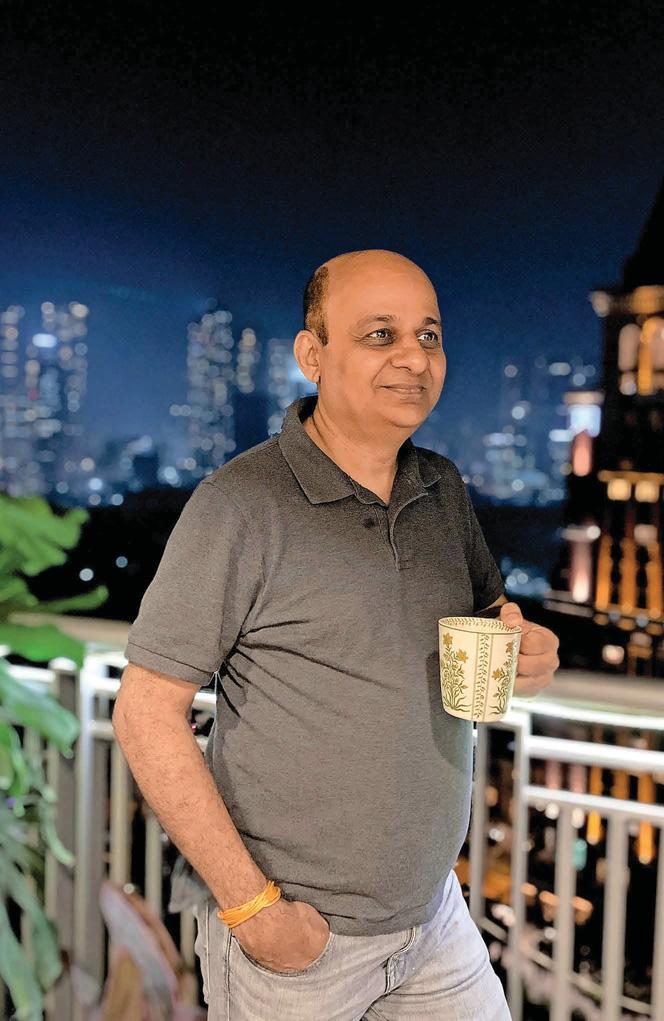
Why so many tests? How many of us can understand the sheets of paper we receive after a simple blood test? Do we require so many tests, or is it just a moneymaking tactic? What is the minimum knowledge we must have of pathological methods and testing? How much is too much?
According to one report, profit margins in pathologies are 23 to 25 percent. The worrying fact is that the diagnostic industry is highly competitive, because of low entry barriers. Organised players cater to only 17 percent of the market.
For this column, we delve into the why and how of diagnostic testing.
Dr Nilesh Shah's qualifications include a BSc and PhD in microbiology and a DMLT (diploma in medical laboratory technology). He has 37 years of experience in his field. At 57, he is the president and chief of science and innovaHealthcare tion at Metropolis Limited.
Why we need to be tested on so many parameters: Comprehensive testing helps ensure good health and well-being, besides providing the clinician a detailed picture for easy decision-making. But it is essential to avoid tests that are beyond the doctor's prescription and are irrelevant.
Renowned laboratories have well-designed test packages that align with best practices. For instance, opting for a lipid profile instead of separate cholesterol and triglyceride tests can provide better value without redundancy, saving both time and money.
What do we do with 40-page reports we cannot make any sense of: Receiving lengthy reports filled with potentially irrelevant data can be overwhelming.
この記事は THE WEEK India の March 03, 2024 版に掲載されています。
7 日間の Magzter GOLD 無料トライアルを開始して、何千もの厳選されたプレミアム ストーリー、8,500 以上の雑誌や新聞にアクセスしてください。
すでに購読者です ? サインイン
この記事は THE WEEK India の March 03, 2024 版に掲載されています。
7 日間の Magzter GOLD 無料トライアルを開始して、何千もの厳選されたプレミアム ストーリー、8,500 以上の雑誌や新聞にアクセスしてください。
すでに購読者です? サインイン

Stroke Of Genius?
Not really. Stroke care is not rocket science. All it needs is better public awareness and access to timely and affordable treatment

At What Ages Do People Feel Most Lonely?
ACCORDING TO A US STUDY PUBLISHED in the journal Psychological Science, loneliness follows a U-shaped pattern in adulthood people are loneliest during younger and older adulthood, and least lonely in middle age.

How Anger Can Hurt Your Heart
Getting angry can constrict blood vessels and increase a person's risk of developing heart in the Journal of the American Heart Association.

Winner in a wheelchair
Cerebral palsy could not stop Sarika from achieving her dream of becoming a civil servant

BONE SUPREMACY
Taking good care of your bones will take a big load off your old age

MAMMOGRAM RECOMMENDED FROM AGE 40
THE US PREVENTIVE SERVICES TASK FORCE (USPSTF) has issued new recommendations for all women to start getting mammograms every other year beginning at age 40 and continuing through age 74.

TREATING GUM DISEASE CAN HELP PREVENT AFib RECURRENCE
PATIENTS WHO HAD THEIR GUM DISEASE treated following treatment for atrial fibrillation (AFib), or irregular heartbeat, are significantly less likely to suffer AFib recurrence, according to Japanese research published in the Journal of the American Heart Association.

LIFT OR STAIRS? ALWAYS CHOOSE STAIRS
ACCORDING TO A STUDY PRESENTED AT ESC Preventive Cardiology 2024, climbing stairs is associated with a lower risk of cardiovascular disease and death.

ESKETAMINE INJECTION MAY REDUCE RISK OF POSTPARTUM DEPRESSION
A SINGLE LOW DOSE INJECTION of esketamine given right after childbirth can reduce the risk of major postpartum depression by about three quarters, finds a US study published in The BMJ.

Nancy, how about Kanhaiya?
I have been following Nancy Tyagi on Instagram for over a year.